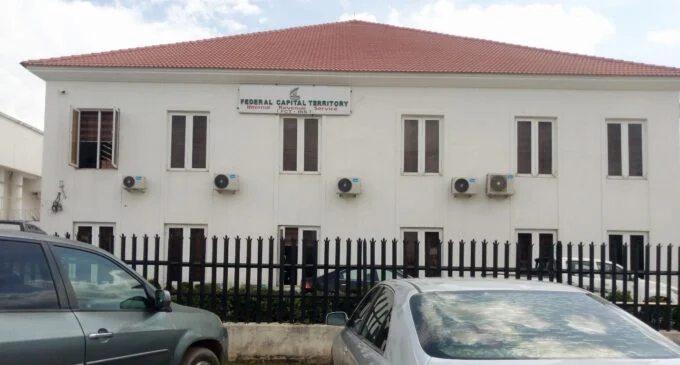Business
Deezer creates tech to detect, delete AI-generated songs

Deezer, the streaming service, says it is building a set of cutting-edge tools to detect and delete music made by artificial intelligence (AI).
The French-owned streamer launched a crackdown on what it has described as “illegal and fraudulent content”.
In recent months, there has been an upsurge in AI-generated music that uses large volumes of existing catalogues to train models and clone the voices of established musicians on projects for onward release via streaming platforms.
This created a copyright dilemma that left music rights owners divided on the ethics and downside of such tools.
Deezer said it will deploy its proprietary Radar technology which can scan catalogues and detect preset signals.
Jeronimo Folgueira, CEO at Deezer, said the company’s new toolset will tag music created with generative AI.
He said the AI-based detector is to begin flagging audio content created with synthetic voices of existing artistes.
The CEO said affected labels, artistes, and other rights holders can also be made to decide what action to take.
“With over 100,000 new tracks uploaded per day to our platform, it’s becoming increasingly important to prioritize quality over quantity and defend real artists that create truly valuable content,” Folgueira said.
“AI can be used to create new incredible content and I believe there are massive benefits of using generative AI, but we need to ensure it’s done in a responsible way.
“There’s an opportunity now to get things right from the start of the AI revolution, and not make the same mistakes as the social media giants did when fake news started to flood their platforms. We owe it to the artists and fans.”
In February, David Guetta, the DJ, used AI to add what is believed to be Eminem’s voice for one of his tracks.
Two months later, a faked duet between Canadian musicians Drake and The Weeknd raised serious concerns.
The alt-pop singer Grimes made her voice available for public use to retain authorship over her music.
Created in 2007, Deezer prides itself as the second-largest independent music streaming platform globally.
Business
FCT-IRS seals school, companies over tax evasion

The Federal Capital Territory Internal Revenue Service (FCT-IRS) has sealed a hotel, a school, and three other business premises in Abuja for tax evasion.
Festus Tsavsar, FCT-IRS acting director of legal services, who led the enforcement team on Thursday, said the closure of the premises was in line with a court order obtained by the tax body.
The affected organisations are Deo Gratias International School, Rural and Urban Homes Ltd, Trevari International Company, Phenomenon International Company, and Residency Hotels.
According to Tsavsar, the hotel and business premises contravened the FCT tax laws by refusing to file their annual returns, in spite of issuing several notices — including a court summons.
“Today, we went out to execute the court orders, which ordered the FCT-IRS to seal off the premises of defaulting taxpayers that were brought before it,” he said.
“We have been able to effectively comply with the court order by sealing off the premises as directed.
“We went to Deo Gratias International School located in Games Village, Kaura, and sealed it off.
“The offence they committed was refusal to file their annual returns in spite of many notices, including a court summon but the school management refused to comply.
“We are at their premises and the management refused to attend to us; and refused to open their doors, in spite of many calls for them to do so to enable us to enforce the court order.”
He also raised concerns over the continued refusal by the school’s management to comply with the tax law.
Tsavsar said the action is tax evasion which is a criminal offence.
‘EVASION OF TAX A CRIMINAL OFFENCE’
He said the management changed the name of the school to DGIS College to “evade tax payment”.
“This is also a criminal offence,” he said.
“The school has not been paying their taxes at all and also refused to file their annual returns since establishment.”
Tsavsar said the team also proceeded to Residency Hotels, located in Area II, Garki, which was also sealed for the same offence.
“From there we went to seal off Rural Urban Homes ltd in Utako and two business premises residing in Transcorp Hilton, Abuja, namely Trevari International Company and Phenomenon International Company,” he added.
Tsavsar warned the affected business owners against any attempt to unseal the premises and advised them to obtain a court order before they can do so.
“If they go against the court order and unseal the premises by themselves, they have committed a criminal offence, and the court will order their arrest,” he said.
“They will be prosecuted in line with the tax law, particularly Section 81 of Personal Income tax law and upon conviction they will be jailed for six months in addition to a fine.”
Tsavsar also warned that the FCT-IRS would go after all tax-defaulting companies and individuals.
He urged taxpayers to comply with existing tax laws, pay their taxes, and file their annual returns.
Business
Naira declines to N1,450/$ at parallel market

The naira declined to N1,450 at the parallel section of the foreign exchange (FX) market on Wednesday.
The current FX rate represents a 1.4 percent depreciation from the N1,430 traded on May 6.
Currency traders, also known as bureau de change (BDC) operators, put the buying rate of the greenback at N1,410 and the selling price at N1,450 — leaving a profit margin of N40.
At the official window, the local currency depreciated by 1.98 percent to N1,421.06 on May 8 — from N1,416.57 on May 7.
During trading, the dollar recorded a high of N1,440 and a low of N1,335, according to data from FMDQ Exchange, a platform that oversees FX trading in Nigeria.
On May 7, the Central Bank of Nigeria (CBN reviewed its directive on the repatriation of export proceeds by international oil companies (IOCs).
Earlier in February, the regulator had placed limits on the transfer of proceeds from crude exports by IOCs to offshore parent company accounts as part of reforms to curb the volatility in the FX market.
The CBN had said the transfer of funds by the IOCs has an impact on liquidity in the domestic FX market, hence the need for the measures to reverse the trend.
“The initial 50% of the repatriated proceeds can be pooled immediately or as at when required. Banks may submit the request for cash pooling ahead of the expected date of receipt, supported by the required documentations, for approval by the Central Bank of Nigeria,” the CBN said, announcing the policy review.
“The 50% balance of the repatriated export proceeds could be used to settle financial obligations in Nigeria, whenever required, during the prescribed 90-day period.”
The apex bank said the IOCs can also utilise the balance for cash calls, domestic loan principal and interest payments, transaction taxes (including Nigerian Content Development (NCD) levy, education tax, and forex sale at the FX market.
Business
CBN extends suspension of processing fees on large cash deposits to September 2024

In a notable policy update, the Central Bank of Nigeria (CBN) has extended the suspension of processing fees on significant cash deposits until September 30, 2024.
This decision impacts cash deposits exceeding ₦500,000 for individuals and ₦3,000,000 for corporations, which were initially subject to fees of 2% and 3% respectively.
The extension, outlined in a letter from the CBN’s Acting Director of Banking Supervision, Dr. Adetona S. Adedeji, dated May 6, 2024, follows a previous directive that had temporarily halted these charges.
The initial suspension, as reported by Nairametrics on December 11, 2023, was a relief to depositors handling large sums, aiming to promote financial inclusion and ease the burden on large transactions.
Nairametrics reported that banks were poised to resume processing charges as the initial suspension period neared its end.
However, the CBN’s latest directive extends this relief, ensuring that depositors will not incur additional costs when making substantial cash deposits for an extended period.
The directive read in part
“The Central Bank of Nigeria (CBN) hereby extends the suspension of the processing fees of 2% and 3% previously charged on all cash deposits above these thresholds until September 30, 2024.
Consequently, all financial institutions regulated by the CBN should continue to accept all cash deposits from the public without any charges until September 30, 2024.”
-

 Entertainment4 days ago
Entertainment4 days agoKanayo introduces first son to filmmaking (Video)
-

 Business4 days ago
Business4 days agoNERC reduces FX rate for calculating new tariff for Band A customers by 16.03%
-

 Crime4 days ago
Crime4 days agoNigerian vendor in UK, Musiliu Badejo jailed for selling toxic skin bleaching products
-

 Business4 days ago
Business4 days agoCBN directs banks to charge 0.5% cybersecurity levy on electronic transfer
-

 Business4 days ago
Business4 days agoNaira depreciates at parallel market, appreciates at official window
-

 Business4 days ago
Business4 days agoFive levies Nigerians pay for electronic transactions
-

 Entertainment4 days ago
Entertainment4 days agoPortable acquires luxury house in Lekki (Video)
-

 Entertainment22 hours ago
Entertainment22 hours agoTems announces release date for her debut album ‘Born In The Wild’


















